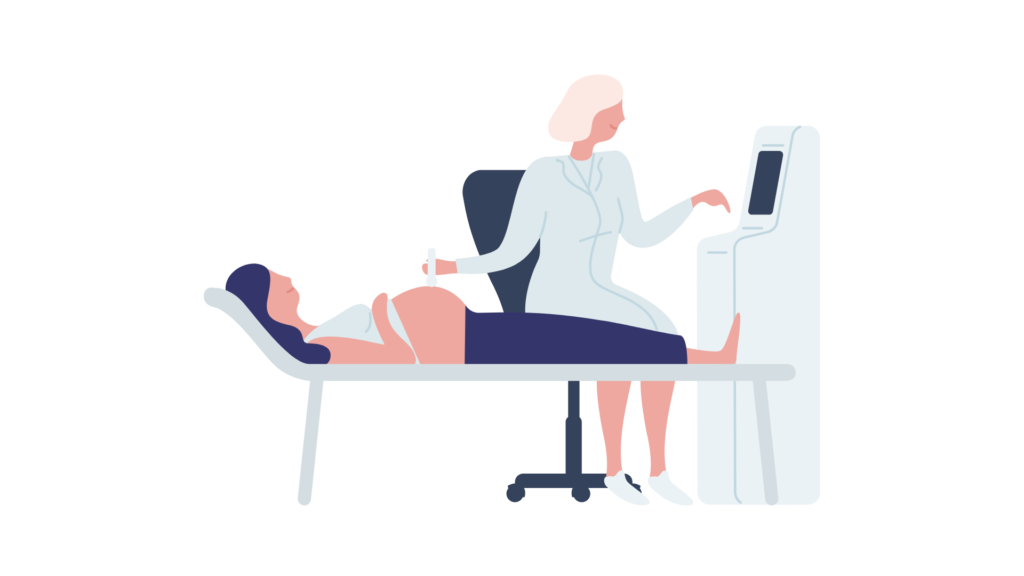Prenatal Care Checkups
Published : 20/04/2024
Last updated: 15/07/2024
Becoming a mother is fun when things are going the way they are supposed to be. Therefore it is essential that new mothers are regularly maintaining prenatal checkups to be in sync with how the baby is doing in there. Here is everything you need to know starting from the very first prenatal visit…
Your very first prenatal visit
Congratulations! if your pregnancy test result just came positive. The first task is to schedule an appointment with your doctor, a good prenatal care is one of those things that are really important to maintain a healthy pregnancy and making sure that the baby is doing well.
The first prenatal checkup usually happens between 6-8th week of pregnancy (second month). This visit will take the longest time since it will be comprehensive, covering from health check-up and confirmation test of your pregnancy, to advices from the doctor on what to eat, which prenatal vitamins to take, and how much to exercise and a lot more.
The most common/routine tests during prenatal visits are:
- Urine test
- Bloodwork
- Genetic carrier screening
- STD tests
- Blood sugar test
- Ultrasound
Preparing for your first prenatal visit
Once you’ve gotten a confirmation of prenatal appointment date, it is best to prepare yourself with some very basic things for the visit to get most out of it.
Making sure you prepare yourself with-
Personal medical history: Any major illness’ previously, vaccinations, surgeries, known allergies.
Mental health history: History of depression, anxiety disorder, or other mental disorder.
Gynecological history: Age at which you had your first period, your menstruation cycle details, mention if you have issues such as PMS or PMDD, previous gynecological surgeries, any STDs.
Obstetrical history: previous pregnancies, including any complications or miscarriages.
Ongoing Medications: Names and dosages of any medications and supplements you take (herbs and vitamins included).
Also make sure to learn about health conditions that runs in families of both you and your partner.
Regular prenatal schedules
After your first prenatal visit it is best to prepare yourself for the upcoming ones. Be sure to note them in your calendar and not to miss any of them, as stated before they are of utmost importance for a healthy pregnancy.
In total you’ll have 10-15 prenatal visits depending on when you find out and first checkup timing. Excluding any complications typically prenatal visits will be on the following frequency:
- Week 4-28: Once a month.
- Week 28 to 36: Bi-weekly
- Week 36 until delivery: Every week.
The frequency of visits increases in the last trimester because some major pregnancy complications often appear during this time. Additionally baby’s growth issues tend to show up during this time as well. therefore your practitioner will need to keep a good eye on all the factors to ensure that everything goes well.
Tests and practices for regular prenatal visits
Nearly all prenatal visits will have a routine, however depending on certain conditions and risks some other tests will also be included. Below mentioned are some of the most common ones that are preferred based on conditions:
- Blood pressure check
- Measure Weight
- Urine sample collection
- Swelling of hands, feet or face
- Listen to fetal Cardiac activity
- Pelvic exams
- Breast exams
- pap smear
- Ultrasounds and doppler scans
- Blood tests
- Glucose screenings
Based on certain risk factors some of the tests below might also be included-
Nuchal translucency screening: Non-invasive check for chromosomal disorders
Group B strep (GBS): Checks for a certain type of bacteria found in every 1 out of 4 women.
Nonstress tests (NST): Done during the third trimester to check fetal heart rate and response to movement.
Biophysical profile(BPP): This is recommended when you are past your due date, or carrying multiples or have high blood pressure.
A Gentle Nudge from Mammas Journey
Prenatal visits are long and comes with a lot of tests, concerns and questions, but all of this is for the well being of both the mother and the baby. So, always feel free to share any concerns, may it be an itch, a worry or a slight bit of pain.
When answering questions be sure to be honest during your appointments. Don’t feel reluctant to bring up any stress, depression, anxiety and specifically drug or alcohol use. These information are critical to ensure healthiest outcome for the baby.
Another thing to make sure is that you collect your doctors number or have a way to reach them incase of an emergency.



